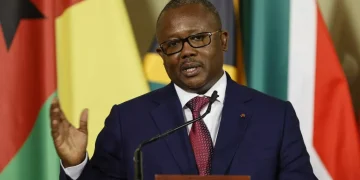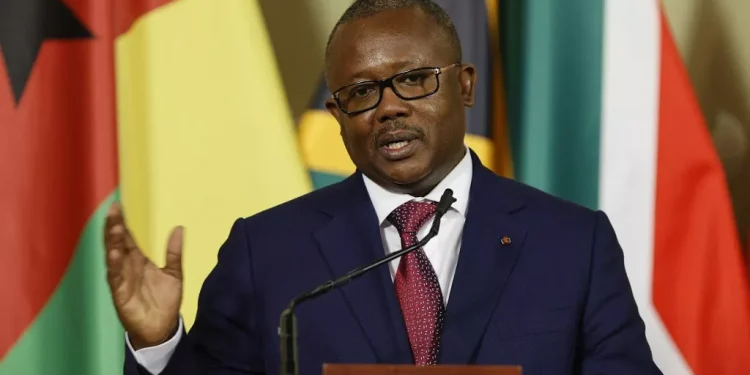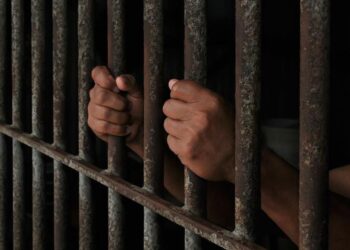By Ebi Kesiena
Guinea-Bissau President Umaro Sissoco Embaló has declared his intention not to seek a second term in the upcoming presidential elections scheduled for November 2025.
His decision, announced just two months before the votes, injects new uncertainty into the political landscape of the West African nation.
Embaló, who assumed office in 2020, has had a turbulent presidency, facing two attempted coups, the most recent in mid-2023. Political instability has long been a defining feature of Guinea-Bissau, a country that has experienced several coups since gaining independence in 1974.
In his brief statement, Embaló did not offer specific reasons for stepping down but noted that his wife had influenced the decision. Despite his efforts to implement significant reforms, including dissolving the country’s Parliament twice during his presidency, he struggled to gain the majority needed to push forward crucial changes, such as a proposed constitutional reform to modify the semi-presidential system.
Although Embaló did not reveal a preferred successor, he ruled out his main political opponents, Domingos Simões Pereira, Nuno Gomes Nabiam, and Braima Camara, stating, “None of them will replace me.” However, in an interview with JA magazine, he hinted that his decision might not be final, leaving room for potential reconsideration in the future.
With the political field wide open, Guinea-Bissau now faces a critical turning point as it approaches the 2025 elections.




































